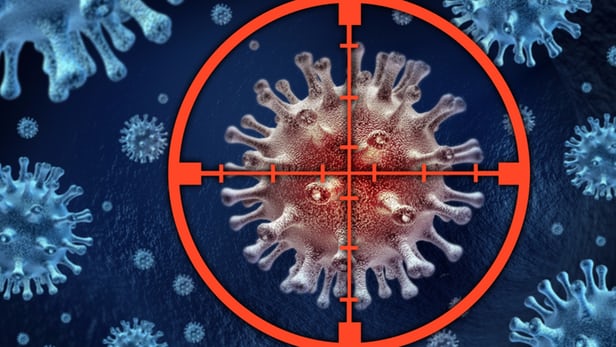Cancer cells' stealth mechanism uncovered

New finding might mean cancer has no place to hide(Credit: Depositphotos/lightsource)
When a malignant tumor invades the body, immune cells rush to the site to begin to fight it. When that same tumor spreads throughout the body, however, the cancer cells become invisible to our immune systems and can metastasize unencumbered by our natural defenses. Researchers out of the University of British Columbia (UBC) are on to cancer's tricky cloaking mechanism though, and their discovery could lead to new approaches to attacking the disease.
"We discovered a new mechanism that explains how metastatic tumours can outsmart the immune system and we have begun to reverse this process so tumours are revealed to the immune system once again," said Wilfred Jefferies, senior author of a new study in Scientific Reports and a professor of medical genetics and microbiology and immunology at UBC.
The discovery hinges on a protein called interleukein-33, or IL-33 that's present in primary tumors. When the tumors emit this protein, it causes another protein complex known as the major histocompatibility complex (MHC) to activate, which tags the cancer cells as a bad presence in the body and guides the immune system to get to work destroying them.
The researchers found that as cancer cells evolve, however, they might lose the ability to produce IL-33 which, in effect, allows them to spread throughout the body without alerting the immune system to their presence. They found that the loss of IL-33 was present in cancers that start on the lining of major organs such as the prostate, kidney, lungs and pancreas, known as epithelial carcinomas.
In the study, when IL-33 was reintroduced to metastatic cancers, it was found that the immune system was able to spot them once again.
While the research was done on prostate and kidney cancer patients, the hope is that testing for IL-33 could at least help doctors monitor the progression of these and other kinds of cancer, and at best, lead to new treatment options.
Enlisting the body's own defenses against cancer is currently one of the most promising approaches to defeating the disease, with talk of a vaccine just beginning to take hold. Knocking out cancer's "invisibility cloak" would certainly be a valuable adjunct to approaches that rely on the immune system to spot and destroy the deadly cells.
Source: UBC